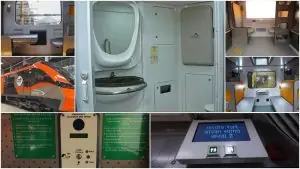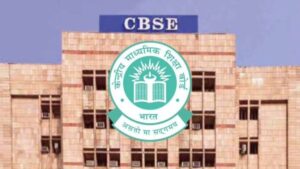Mumbai Bengaluru Expressway to Reduce Travel Time to Just 6 Hours with New 14-Lane Greenfield Corridor

New 14-lane greenfield expressway to connect major IT hubs — Mumbai, Pune, and Bengaluru — cutting travel time from Mumbai to Bengaluru to just 6 hours
Gadkari’s mega infrastructure push under Bharatmala Pariyojana aims to transform travel between three key IT hubs, namely Mumbai, Pune and Bengaluru through this new Mumbai Bengaluru Expressway project
Mumbai, India – In a transformative push for regional connectivity and economic growth, the Union Ministry of Road Transport and Highways has unveiled a ₹40,000 crore expressway project that aims to drastically cut travel time between Mumbai and Bengaluru. Once completed, the new greenfield expressway will reduce the journey between the two major metro cities from 18 hours to just 6.
The ambitious expressway is a part of the Bharatmala Pariyojana initiative and will feature a 14-lane, access-controlled design, promising faster, safer, and more efficient travel.
Key Features of the Mumbai Bengaluru Expressway:
Drastic Travel Time Reduction: The travel time between Mumbai and Bengaluru will be cut down from 18 hours to 6, and Pune to Bengaluru will reduce to just 4-5 hours.
700 km Route Coverage: The expressway will pass through 12 districts across Maharashtra and Karnataka.
- Maharashtra Segment: Begins at Kanjale on the Pune Ring Road and passes through Pune, Satara, and Sangli.
- Karnataka Segment: Covers Belagavi, Bagalkot, Gadag, Koppal, Vijayanagar, Davanagere, Chitradurga, Tumakuru, Bengaluru Rural, and ends in Bengaluru.
Modern Infrastructure: The project includes 22 interchanges, 55 flyovers, and two emergency airstrips. The expressway will have a speed limit of 120 kmph.
Access-Controlled Greenfield Design: Built exclusively for fast-moving vehicles, ensuring a smooth commute and faster goods movement.
Economic and Sectoral Impact
The expressway is expected to be a game-changer for commercial logistics, trade, and the IT sectors of both Maharashtra and Karnataka. The improved connectivity will reduce transit times for goods and services, thus enhancing supply chain efficiency and boosting trade across state borders. Both Pune and Bengaluru, key IT hubs, are expected to see enhanced collaboration and economic integration.
Oversight and Accountability
The National Highways Authority of India (NHAI) will supervise the construction of the eight-lane motorway. To ensure quality and timely completion, strict oversight measures are being implemented. The Union Minister has already demonstrated a zero-tolerance policy towards underperformance—imposing a ₹50 lakh fine on a contractor for substandard work on the Delhi-Mumbai Expressway.
ALSO READ | Mumbai–Pune Expressway’s ‘Missing Link’ Project Enters Final Stage; Amne Node to Become Major Industrial Hub
Mumbai Bengaluru Expressway – Concerns and Cautions
While the announcement has been widely welcomed, concerns remain about project delays and construction quality—issues that have plagued other infrastructure projects in the past. The government has reiterated its stance that contractors responsible for delays or poor workmanship will face blacklisting and financial penalties.
The Pune-Bengaluru section of the expressway is already under development and will connect with the Mumbai-Pune Expressway through the Pune Ring Road, creating a seamless corridor across three major cities.
As India continues its infrastructure push, the Mumbai-Bengaluru expressway stands out as a symbol of rapid development and modernization, provided that quality, transparency, and timeliness are maintained throughout the project lifecycle.









